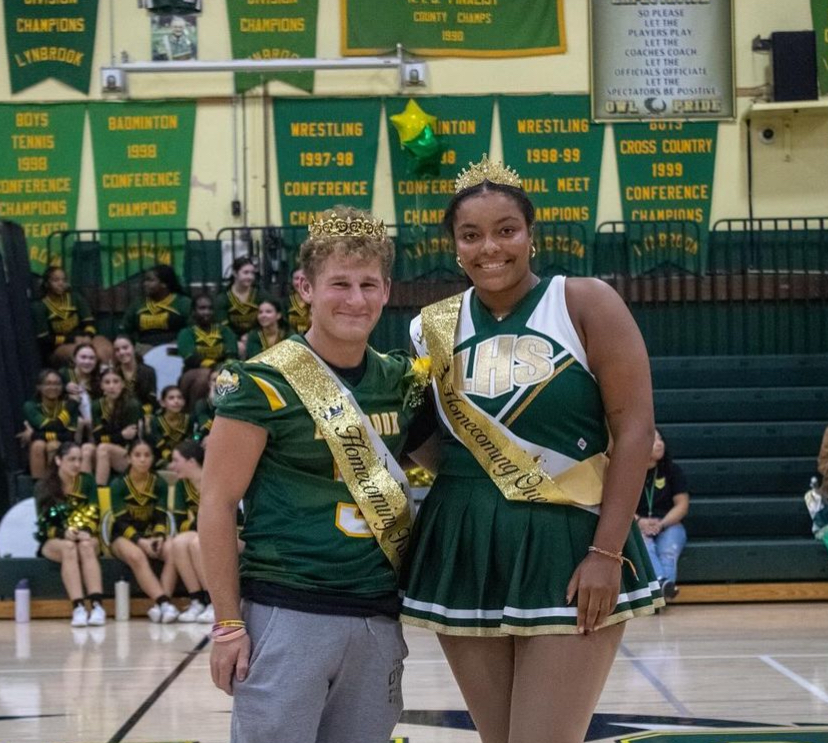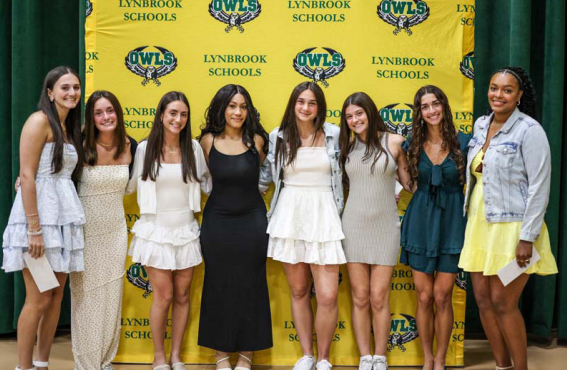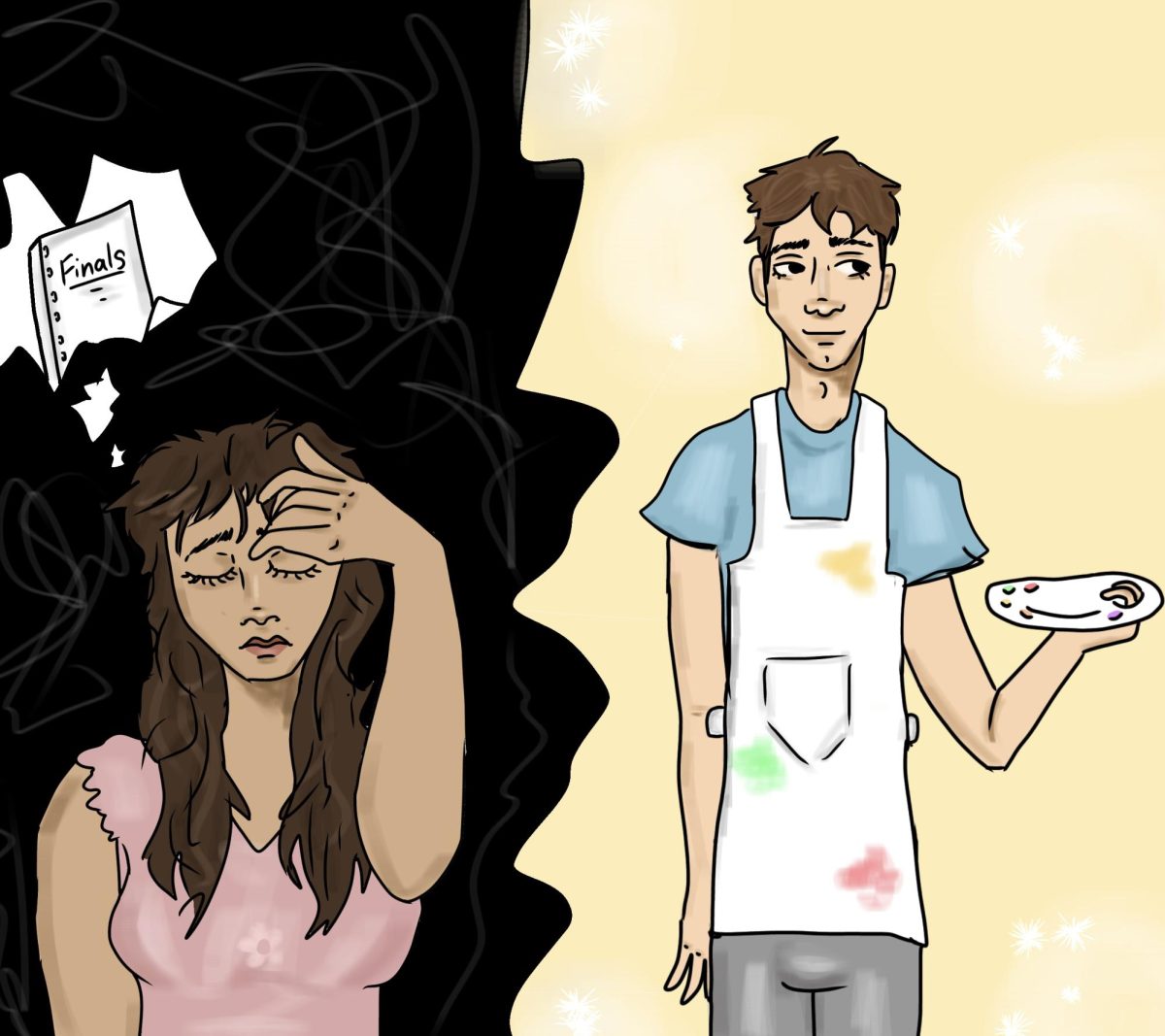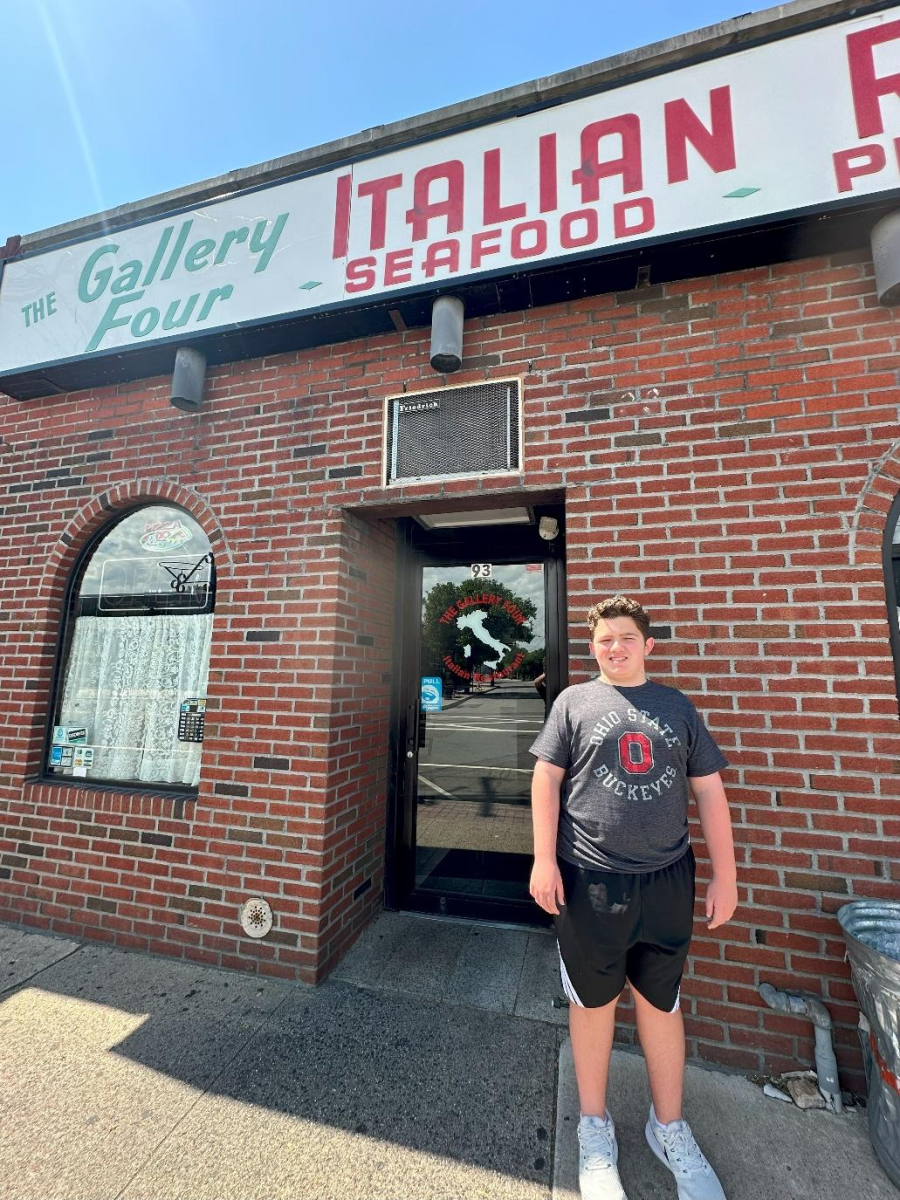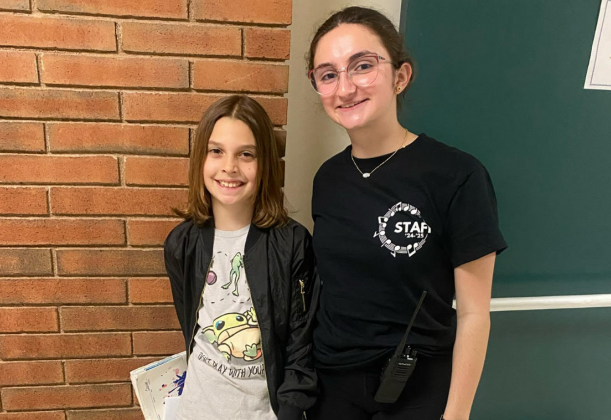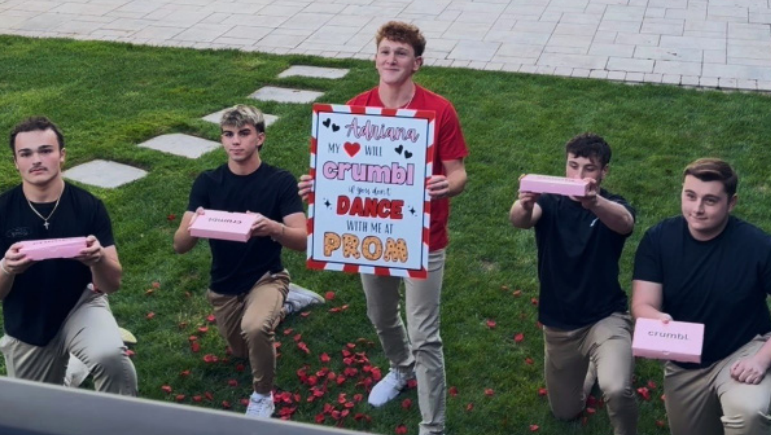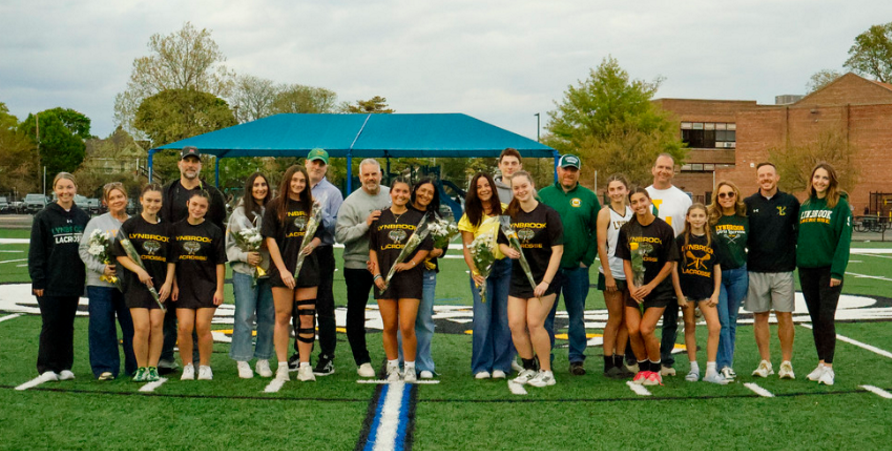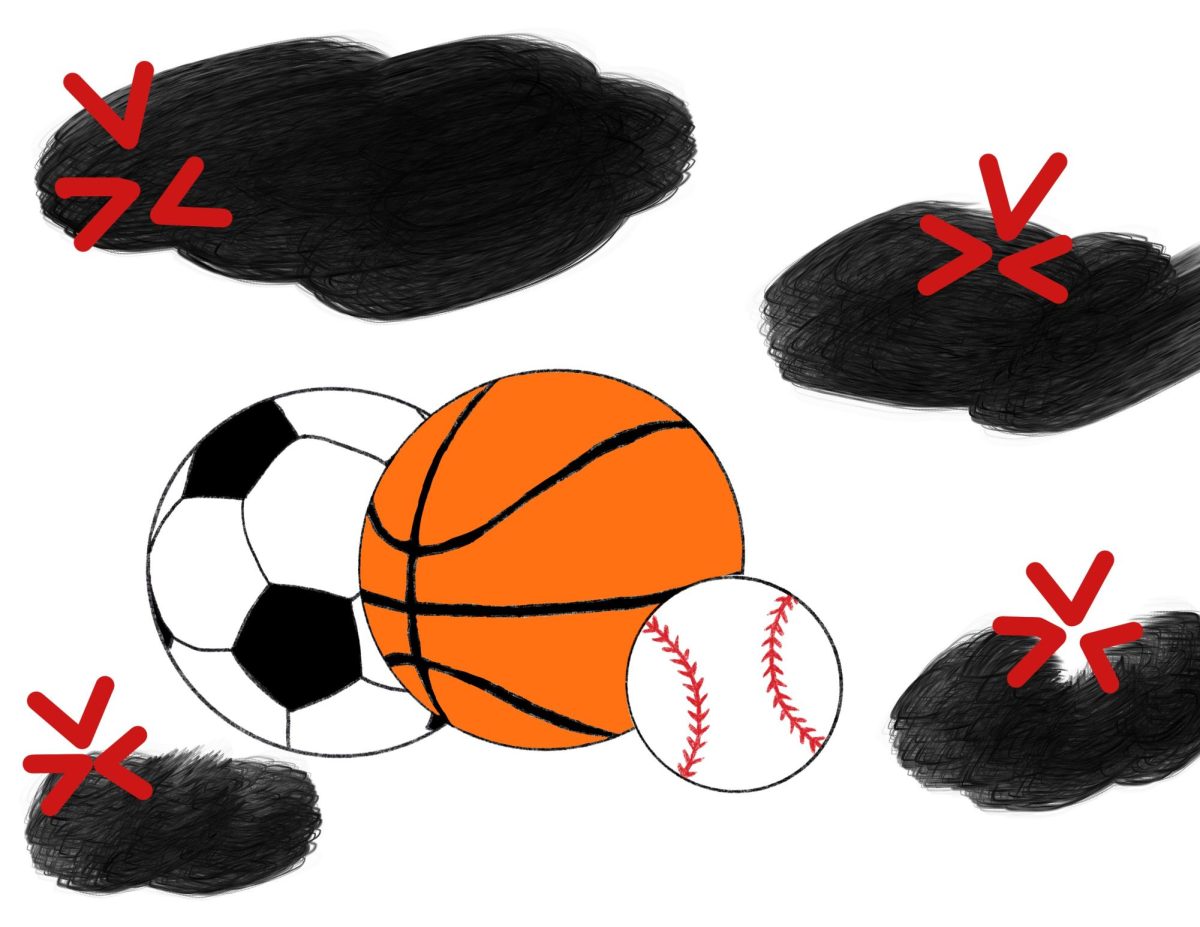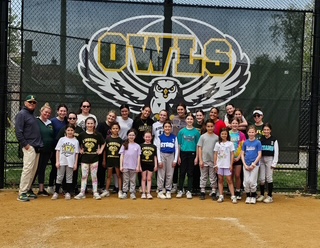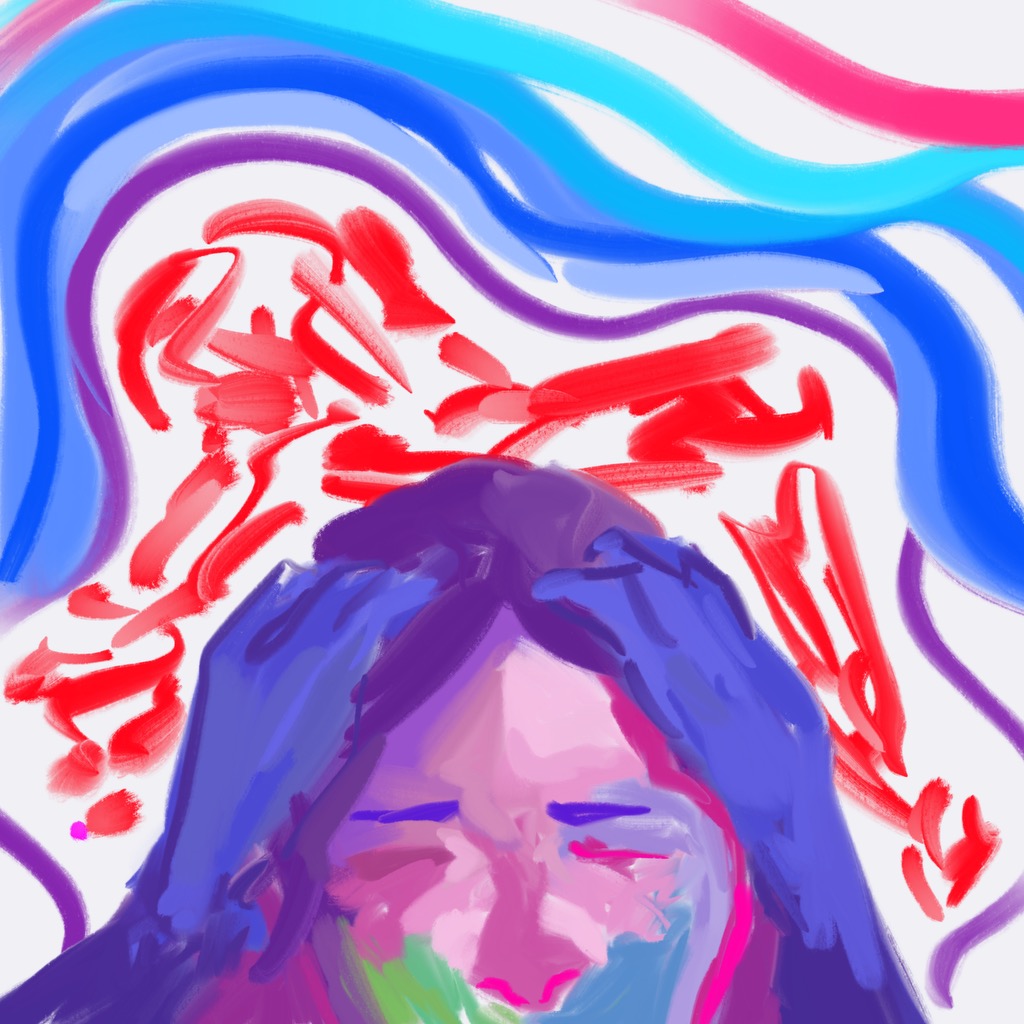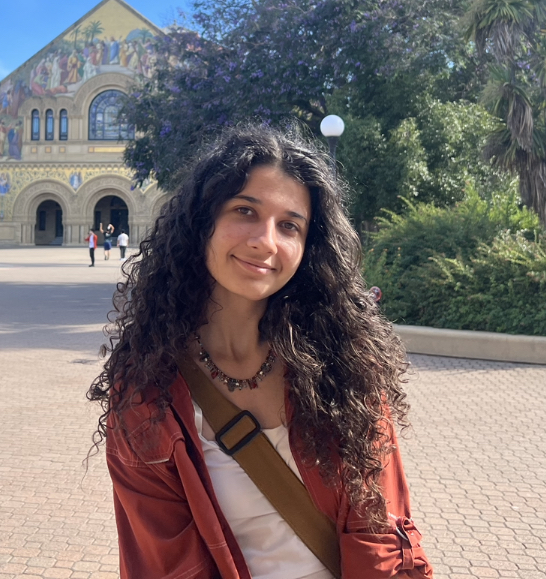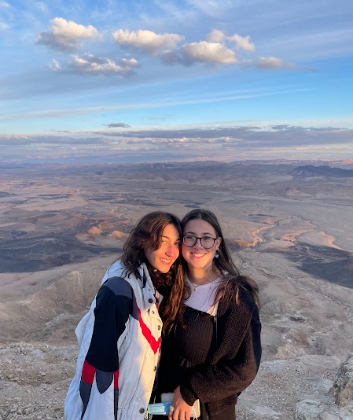
On the warm fall morning of Saturday, Oct. 7, Shoshana Markowitz woke up in her Lynbrook home, surrounded by the childhood mementos of growing up Jewish on Long Island. It was the day she was bound to return to Tel Aviv University in Israel, where she would resume her second-year studies. But the messages that flooded into her phone from worried friends and family were the antithesis of warmth. “When I opened my phone, I couldn’t believe my eyes,” Markowitz shared. “I woke up to texts and calls saying, ‘Are you still going?’ ‘What’s going on?’ ‘I heard there’s a war.’”
Her flight was set to leave at 11:50 PM.
Markowitz graduated from LHS in 2021 and had always planned on doing a gap year in Israel. After spending half of the year in Jerusalem (the capital of Israel and a designated holy place for both Jews and Muslims) and the other half in Tel Aviv, she planned to attend the University of Pittsburgh. Yet, she fell in love with Israel. “I talked it over with my parents. [We] found alternative plans and ways I could continue to study in Israel, which is when I applied to Tel Aviv University.” She began her educational journey in the country in 2022, majoring in psychology and minoring in life science.
Her life in Tel Aviv was like a dream.“Living in Tel Aviv is doing schoolwork at a cool cafe, going to the beach after school, and having very relaxed relationships with my professors,” Markowitz explained. The cultural capital of Israel, the city houses a multitude of exhibits mingling the old and new, from ancient ruins to vibrant contemporary theaters.
Safety had never been a concern for Markowitz while she studied in Israel. Bethlehem––a city on the West Bank south of Jerusalem, considered Palestinian territory––was a destination she had no hesitation visiting. “I felt very safe, and I really enjoyed the experience. It was interesting to see the other side of history.” Being on the other side of the wall, for Markowitz, provided an insight into how similar her life was to that of any Palestinian.
While Markowitz continued to live and study in Israel, the conflict between Israel and Palestine swelled, as did fervent reactions to Benjamin “Bibi” Netanyahu’s government. Netanyahu is the current prime minister of Israel, having served more than three terms for over 16 years. He has created the most conservative government Israel has seen, culminating in a plan to impinge on the power of the judiciary system in Israel in the spring of 2023. “[T]here have been protests against certain government policies that were being made that ultimately hindered freedom of expression,” Markowitz noted. Her school went on strike, and students retreated to their residencies and sat in on classes held over Zoom. “[M]y school wouldn’t operate…it went against what they believed in. I participated in those strikes.”
A month later, in April, rockets fired by Hamas militants were fired from the Gaza Strip into Israeli territory. Over 400 rockets were intercepted by the Iron Dome, Israel’s defense system. “I was able to live a normal life, but this wasn’t something I was used to when I lived in America,” Markowitz said. However, the conflict truly exploded on Saturday, Oct. 7, when, according to The New York Times website (nytimes.com), a group of armed Hamas terrorists stormed the Jewish kibbutzim (settlements) of Kfar Aza, Be’eri, Ofakim, Sderot, Yad Mordechai, Yated, Kissufim, and Urim, killing over 1,200 Israelis and kidnapping another 240. “I have several friends who live there who are in the army currently…[and] close family friends who live in Ashod, which is…relatively close to the Gaza border. Thankfully, everyone in my inner circle is safe, and everyone is hopeful and resilient…That’s the number-one trait I would use to describe Israelis: resilient….”
Growing up Jewish in Lynbrook is not unusual, and Markowitz was exposed to her religious and cultural heritage as a child. Her summers were spent in Jewish camps, and she was always involved in Jewish community events. Her identity was molded by the Long Island Jewish experience — a unique synthesis of cultures found nowhere else in the world. And so, when living in Israel, Markowitz’s relationship to her Jewish identity changed in ways she had not previously imagined. “It’s very funny because I grew up keeping kosher, going to synagogue, and then when I moved to Israel, I sort of explored my own identity within Judaism because it didn’t have to necessarily be proven every day because everyone was Jewish.” There was no need to hold on to this identity, to fight for it, because for the most part, being a Jew was inherent to being in Israel. Moving back to Long Island has made her experience even more nebulous. “[M]y name is Shoshana; it’s a Hebrew name. I feel like ‘Jew’ is written on my forehead, which is something I’m proud of, but I am also now very cautious of. And, it’s silly, but in Israel, I feel like an ‘American-Jew’…[but] here I feel like a ‘Jewish-American,’ and that’s kind of the best way I can explain it.” Reconciling this dichotomy for Markowitz has also led to an ever-changing identity, one further tested by a mountain of fear.
Increasing levels of antisemitism have pushed Jews in the United States into growing fear not only for loved ones far away, but also for their own safety. These fears manifest in intangible ways for those who have not witnessed them. Jews make up about 2% of the population in the United States, but according to the Federal Bureau of Investigation’s (FBI) website (fbi.gov), the most recent recordings of religion-based hate crimes have nearly doubled from 2021 to 2022. “On top of all of the terrorism going on and Israelis fearing for their lives, it’s now become an issue of Jews fearing for their lives. And it’s something I never thought would happen,” Markowitz remarked. Her Jewish friends who study in the U.S. have felt unmoored, afraid to walk to class, glancing at the news, worried with each word of another verbal or physical hate crime. “So even when people who don’t really know the situation sit around me are saying, ‘I’m so sorry you can’t go back to Israel,’— especially my Jewish friends — I say, well, I’m sorry for you too, because this has been beyond just an attack against Israel…it’s really become an attack against Jews around the world.”
With the swelling conflict in the U.S. further exacerbating global issues, it can be difficult to navigate information circulated on the internet. Living in a century of ubiquitous information also means living during a time of rampant misinformation. Opinions change constantly, and one may not even be fully aware of a situation’s framework. It is so easy to live in a bubble, even when the world is at one’s fingertips. Markowitz explained that even her perspective on the conflict has shifted: “Before this whole conflict…I was still very confused about the perspective coming from the Palestinian side, and since the war, I have definitely become more educated. I am Pro-Palestine…[but] most people don’t know what they’re posting and don’t realize that they are saying things in a harmful, antisemitic way. I think we have to shift the focus onto ending Hamas because that’s the ultimate goal at the moment.” In dynamic conflicts like this one, information is transient and can often change by the hour, so it is important to stay updated on current events, Markowitz added.
Discussing the news can be helpful in solidifying one’s understanding, but being careful with what is posted can help stop the spread of fake news. “The most important thing is to read everything and not believe everything. Especially with posting…it should be a ‘three-check-system;’ read it from one source, and then read it from two others — then, you can post. Because again, this is a very sensitive war, and it’s important to be posting with the proper information.” A wrong post, even on a smaller account, can cause confusion and spread ignorance, and words hold more gravity than ever expected, Markowitz explained. A “social media war” has also been fueled by consistent disagreements between people all over the world. Journalists in both Israel and Gaza have tried to make their voices heard, but on platforms where everyone can share their opinions, first-hand accounts can often be swallowed up in a sea of disagreement, bias, and ad hominem attacks.
As a high school student, it can be difficult to donate to charities. Markowitz explained that even as a college student, she only has so much to give, but staying educated on where help is needed is useful, as it can point others in the right direction. “I have personally donated to the Kibbutz Kfar Aza and Kibbutz Be’eri, which were both affected by Hamas on October 7,” she added. Following accounts on Instagram on both sides of the conflict can also be enlightening. “I really like Noa Tishby; she’s a spokesperson…for me as a young person, I understand her best,” she mused. Noa Tishby is an Israeli activist, writer, producer, and actress.
Furthermore, connecting with Jewish friends and family, especially in a community that bonds over deep cultural connections, can help bring underrepresented opinions and feelings to light. “It’s so important to ask your Jewish friends, ‘Are you okay? How are you doing? Can you explain how you’re feeling?’…Ask questions [like], ‘But what do you think about what’s going on in Gaza?’ Because I can guarantee that we’re all devastated by the lives lost in Gaza, but they were lost ultimately because of Hamas; they started this conflict,” Markowitz added. Learning about the history of conflict in the land that now encompasses Israel and Palestine is crucial.
Longing to go back to Israel, Markowitz takes care of herself, running and doing yoga before her Zoom classes. Therapy has been helpful in dealing with all of the overwhelming emotions she has faced, with the longing to help while being so far away. “My heart is there, and my head is there, but I’m going through the motions here… I feel like I’ve definitely been going through the stages of grief: at first, I was very sad, and I cried, then my sadness turned to anger and frustration….because Israel’s not just a war zone; it’s homes, it’s cities…but I think that living there just makes it so much closer to home and makes it so much more personal because my whole life has been haunted due to this conflict,” she said. Markowitz also gets her news from various sources and tries to stay off social media. She makes an effort to think optimistically: “I haven’t been home for Thanksgiving in two years…[and] my birthday is at the end of the month. I’m trying to do the best I can to educate and stop the spread of fake news…I’m trying to choose life over war.”

